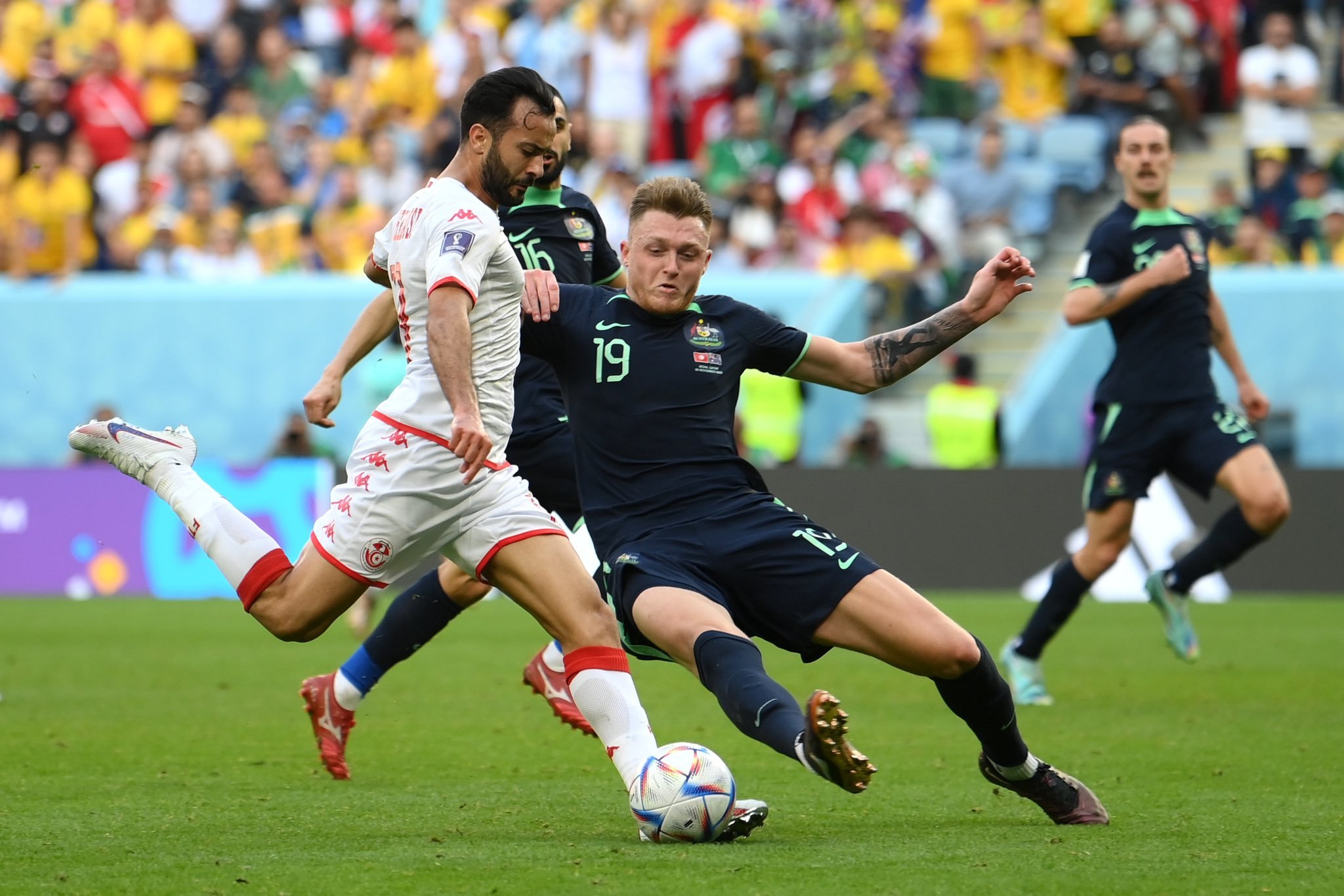Someone’s Golden Generation
“Weakest Australian side to ever play at the World Cup.”
“Australia isn’t a footballing country.”
“Making up the numbers.”
The analysis from neutral media and, to be honest, jaded Australian football fans and pundits was a spitting hellfire of negativity and foreboding. The magic of the penalty shootout triumph over Peru had long since faded, with the sudden realisation of the task ahead.
After all, this was pretty much the same group as 2018, which was straight up not a fun time for the Socceroos. France entered the tournament ranked fourth in the world, Denmark 10th and Tunisia 30th, all above the Socceroos ranking of 39th.
However, as with any Australian national team entering a major tournament or competition, that dare to dream mentality, that “why not us” question began to seep into the public groupthink. Nothing gets the Australian sporting public more up and about than being thought of as a longshot.
Ask any football fan in this country over the age of 25 and they should be able to tell you in extensive detail where they were during that famous game against Japan in southwestern Germany. Their emotions as Graham Poll gave Josip Simunic three yellow cards. Their anguish as a sprawling Fabio Grosso collected the outstretched leg of Lucas Neill.
For me, as a 10 year old, I was awoken at stupid o’clock by my mother, answering the rallying call of my heroes at the time, bleary-eyed and huddled under a mountain of blankets in the wintry morning darkness, barely unable to contain my excitement as Tim Cahill sliced the Blue Samurai to pieces.
My mother and grandparents, all Italian-born, roaring with the rest of the nation their disapproval as the green and gold glasses presented the evidence that Grosso "cheated” Australia out of advancing to the quarter finals.
“Imbroglione” I remember my Nonno saying about the incident.
Football in this country had never been higher. Here was a group of players, standing on the shoulders of giants that had gone before them. Bastions of the game like Les Murray and Johnny Warren, the power of 80 years of footballing history spurring the Socceroos on to that eventual heartbreak at the hands of the eventual champion Italians.
As it transpired, that “golden generation” would end up inspiring the next generation of players. The national league went from strength to strength, participation rates in youth football skyrocketed, and World Cup qualification became an expectation rather than a pipe dream.
The highs of 2006 make the lows of the last few years so much tougher to take.
A national team floundering in Asian qualification, struggling to get results against emerging Asian nations, their best defender nursing a serious knee injury, their manager under fire for perceived rigidity in team selection and an uninspiring playstyle.
A national competition in decline, rapidly losing popular interest in the public. A questionable TV deal to paywall the A-League behind a lacklustre streaming service killing off casual support for the game and encouraging local snobbishness.
“Why would I watch the A-League on Paramount when the EPL is on Optus for the same price?”
Entering the World Cup, yes, there was a worry that this would be a repeat of 2018. Three losses, no open play goals, an early exit and more questions than bright spots for the future.
A sport rapidly going backwards and losing the battle for turf against the entrenched codes like rugby league and Australian rules, as well as the emergence of basketball.
And then someone found the match box, and the spark was lit once again.
It all started with Craig Goodwin’s landmark goal against France, and while the end result was disappointing, for that brief 20 minutes there was hope that maybe things would be different this time.
As it turns out, hope is all you need.
These Socceroos, the supposed worst in history, have just finished their World Cup group campaign with two wins, their best ever effort, and two clean sheets to boot. They hadn’t kept a clean sheet since 1974 for goodness sake.
In twenty years from now, the next generation of players will be recollecting memories of this squad. They’ll tell of their jubilation as Mathew Leckie twisted Danish defenders inside and out on the way to firing the Socceroos into the knockouts.
They’ll tell of their excitement as the Socceroos ended a 12 year drought by beating Tunisia thanks to a ridiculous, angular header from Mitchell Duke.
They’ll recall fondly Harry Souttar, Hadrian’s Wall himself, and his reckless abandon and fierce commitment to every single challenge.
They’ll recount the absolute limbs in Federation Square. The flares going off and the utter unbridled joy and madness and emotion and tension that only football can bring.
Representation in sport matters. No team quite unites the nation like the Socceroos does. You hear the stories like Jackson Irvine being in Germany in 2006, and then you see his tears on the pitch at full time as he emulated his heroes.
This Socceroos team has brought the country together. Where Federation Square was the jewel in the supporters crown, you now see premiers and local governments scrambling to organise live sites to show the crucial do-or-die bout with Argentina.
That didn’t happen in 2018. Previous World Cups were allowed to wither and die, along with the Socceroos’ performances. The nation loves an underdog, but it loves a winner more.
If there’s one thing this World Cup has proven, it’s that football isn’t dead in this country.
It never was.
It lay dormant, awaiting a brave group of heroes to lead the nation forward, to provide that optimism, that hope, that spark.
These Socceroos may not be the golden generation of 2006.
But you know what? They’ll be someone’s golden generation down the line, and that’s good enough.





